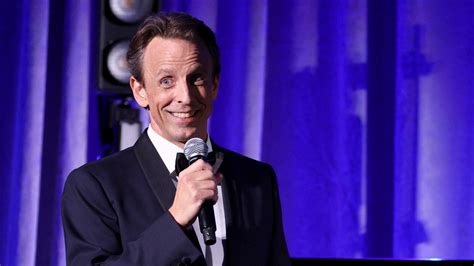
A landmark season of “Survivor” is on the horizon as “Survivor 50” sets the stage for a clash of titans, featuring celebrated LGBTQ+ stars and iconic reality TV legends. The highly anticipated season promises a dynamic blend of strategic gameplay, personal stories, and fierce competition, as a cast comprised entirely of returning players vies for the ultimate title of Sole Survivor.
“Survivor 50” marks a significant milestone for the long-running reality series, not only in its longevity but also in its commitment to diversity and representation. This season’s cast includes notable LGBTQ+ figures who have left indelible marks on the show, alongside legendary players known for their strategic prowess, memorable personalities, and compelling narratives. The convergence of these two groups guarantees a season filled with unexpected alliances, strategic masterminds, and emotionally resonant moments.
The selection of LGBTQ+ stars underscores “Survivor’s” ongoing efforts to showcase diverse voices and experiences. These players have previously demonstrated resilience, strategic acumen, and the ability to connect with audiences on a profound level, making their return all the more anticipated. Their presence also highlights the evolving landscape of reality television, where inclusivity and representation are increasingly valued.
Adding to the excitement, the inclusion of reality TV legends ensures a season packed with strategic complexity and historical context. These returning players bring with them a wealth of experience, having navigated the challenges of “Survivor” in previous seasons. Their strategies, alliances, and rivalries will undoubtedly shape the dynamics of “Survivor 50,” creating a compelling narrative for viewers.
The blend of these two distinct groups – LGBTQ+ stars and reality TV legends – sets the stage for a season unlike any other. The strategic interactions, personal stories, and competitive spirit of “Survivor 50” promise to captivate audiences and solidify the show’s legacy as a cultural phenomenon. As the premiere date approaches, anticipation continues to build, with fans eagerly awaiting the return of their favorite players and the unfolding of a new chapter in “Survivor” history.
The Players and Their Stories
While the official cast list for “Survivor 50” has not yet been released, speculation is rife regarding which LGBTQ+ stars and reality TV legends will be competing. Based on previous seasons and fan favorites, several names are consistently mentioned in discussions and online forums.
Among the potential LGBTQ+ contestants, several stand out for their memorable performances and impact on the show. One prominent name is Zeke Smith, who played in “Survivor: Millennials vs. Gen X” and “Survivor: Game Changers.” Zeke is known for his strategic gameplay and resilience. Another potential contestant is Tai Trang from “Survivor: Kaoh Rong” and “Survivor: Game Changers”. His compassionate nature and strategic thinking made him a fan favorite. Also, Aubry Bracco, known for her strategic mind and strong social game is also a likely candidate. Aubry’s strategic mind and ability to forge alliances made her a formidable player.
On the legendary reality TV side, names such as Boston Rob Mariano, Parvati Shallow, and Sandra Diaz-Twine are often mentioned. Boston Rob is a “Survivor” icon known for his strategic dominance and strong leadership. Parvati Shallow is celebrated for her strategic prowess and social manipulation skills, and Sandra Diaz-Twine, the only two-time winner in “Survivor” history, is revered for her strategic cunning and adaptability. These players represent the pinnacle of “Survivor” gameplay, and their return would undoubtedly elevate the strategic complexity of “Survivor 50.”
The inclusion of such iconic players would not only pay homage to the show’s rich history but also provide a platform for new narratives to emerge. The interactions between these legendary figures and the LGBTQ+ stars would create a dynamic and unpredictable environment, ensuring a season filled with strategic twists and emotional depth.
Strategic Implications and Potential Alliances
The dynamics of “Survivor 50” will hinge on the strategic interactions between the LGBTQ+ stars and the reality TV legends. The potential for alliances and rivalries is vast, given the diverse backgrounds, playing styles, and personal histories of the contestants.
One possible scenario is the formation of alliances based on shared experiences or strategic philosophies. For instance, LGBTQ+ players might find common ground in their shared identities and form alliances to navigate the challenges of the game. Alternatively, seasoned veterans could band together, leveraging their experience to control the game’s trajectory.
However, the presence of strong personalities and strategic masterminds could also lead to intense rivalries. Players with conflicting strategies or personal animosities could find themselves locked in power struggles, creating dramatic conflicts and unexpected twists. The interplay between these alliances and rivalries will undoubtedly shape the outcome of “Survivor 50,” making it a season defined by strategic complexity and unpredictability.
The strategic implications of “Survivor 50” also extend to the social dynamics of the game. In “Survivor,” the ability to build relationships, manage perceptions, and influence others is crucial for success. The LGBTQ+ stars bring unique perspectives and experiences to the social game, potentially challenging traditional norms and fostering new forms of connection. Their ability to connect with other players on a personal level could prove to be a significant advantage, allowing them to forge alliances and gain trust.
Similarly, the reality TV legends possess a deep understanding of the social dynamics of “Survivor.” They have honed their skills in previous seasons, learning how to navigate complex social situations, build rapport with others, and manipulate perceptions. Their experience could give them an edge in the social game, allowing them to control the narrative and influence the decisions of others.
Diversity, Representation, and Cultural Impact
“Survivor 50” represents a significant milestone in terms of diversity and representation on reality television. The inclusion of LGBTQ+ stars underscores the show’s commitment to showcasing diverse voices and experiences, reflecting the evolving landscape of society.
The presence of LGBTQ+ players on “Survivor” not only provides representation for marginalized communities but also challenges societal norms and stereotypes. By sharing their stories and experiences, these players can educate viewers, foster empathy, and promote understanding. Their visibility on a mainstream platform like “Survivor” can have a profound impact, inspiring others to embrace their identities and challenge discrimination.
The cultural impact of “Survivor 50” extends beyond the realm of entertainment. The show has the potential to spark conversations about diversity, inclusion, and social justice, raising awareness of the challenges faced by LGBTQ+ communities and promoting a more inclusive society. By showcasing diverse perspectives and experiences, “Survivor” can contribute to a more equitable and just world.
Moreover, “Survivor 50” highlights the importance of representation in media. When marginalized groups are represented on television, it sends a message that their stories matter and that they are valued members of society. Representation can also empower individuals to pursue their dreams and challenge systemic barriers.
The cultural impact of “Survivor 50” is also tied to the show’s legacy as a cultural phenomenon. “Survivor” has been on the air for over two decades, captivating audiences with its blend of strategy, adventure, and human drama. The show has become a cultural touchstone, influencing other reality TV shows and shaping the way people think about competition, strategy, and human nature.
The Evolution of “Survivor” and Reality Television
“Survivor 50” is a testament to the evolution of “Survivor” and reality television as a whole. The show has undergone significant changes since its debut in 2000, adapting to changing cultural norms and audience expectations.
One of the most significant changes in “Survivor” has been its increasing focus on diversity and representation. In the early seasons, the cast was predominantly white and heterosexual. However, in recent years, the show has made a concerted effort to include more people of color, LGBTQ+ individuals, and people from other marginalized communities.
This shift towards diversity and representation reflects a broader trend in reality television. As audiences have become more aware of social justice issues, they have demanded more inclusive and representative programming. Reality TV shows have responded by casting more diverse casts and telling more diverse stories.
The evolution of “Survivor” also reflects changes in the way people play the game. In the early seasons, the game was largely about survival skills and physical challenges. However, as the show has evolved, strategy and social dynamics have become increasingly important.
In “Survivor 50,” strategy and social dynamics will likely play an even more significant role than in previous seasons. The cast is comprised of experienced players who understand the nuances of the game. They will be constantly strategizing, forming alliances, and manipulating perceptions in an effort to gain an edge.
Fan Expectations and Anticipation
“Survivor 50” is one of the most highly anticipated seasons in the show’s history. Fans are eagerly awaiting the return of their favorite players and the unfolding of a new chapter in “Survivor” history.
One of the main reasons for the high level of anticipation is the cast. The prospect of seeing LGBTQ+ stars and reality TV legends compete against each other has generated a great deal of excitement among fans. People are eager to see how these players will interact, what strategies they will employ, and who will ultimately emerge victorious.
Another reason for the high level of anticipation is the milestone nature of the season. “Survivor 50” marks a significant achievement for the show, which has been on the air for over two decades. Fans are eager to celebrate this milestone and to see what the future holds for “Survivor.”
The anticipation for “Survivor 50” has also been fueled by speculation and rumors. Fans have been debating which players will be cast, what twists and turns the season will feature, and who will ultimately win. This speculation has only added to the excitement and anticipation surrounding the season.
The Legacy of “Survivor”
“Survivor 50” represents more than just another season of a reality TV show. It is a testament to the legacy of “Survivor” as a cultural phenomenon and a reflection of the evolving landscape of reality television.
“Survivor” has been on the air for over two decades, captivating audiences with its blend of strategy, adventure, and human drama. The show has become a cultural touchstone, influencing other reality TV shows and shaping the way people think about competition, strategy, and human nature.
The success of “Survivor” can be attributed to several factors. First, the show is incredibly well-produced. The challenges are exciting, the locations are stunning, and the editing is top-notch. Second, the show features compelling characters. The players are diverse, complex, and often unpredictable. Third, the show taps into fundamental human desires. People are drawn to stories about survival, competition, and the triumph of the human spirit.
As “Survivor” enters its third decade on the air, it faces new challenges. The reality TV landscape is more crowded than ever, and audiences have more options for entertainment. However, “Survivor” has proven its ability to adapt and evolve over the years. The show has remained relevant by embracing diversity, incorporating new twists and turns, and continuing to tell compelling stories.
“Survivor 50” is a celebration of the show’s legacy and a glimpse into its future. The season promises to be exciting, unpredictable, and culturally significant. It is a reminder that “Survivor” is more than just a reality TV show; it is a cultural phenomenon that has shaped the way we think about competition, strategy, and human nature.
Frequently Asked Questions (FAQ)
Q1: When will “Survivor 50” air?
A1: As of now, the official premiere date for “Survivor 50” has not been announced. However, given the show’s history and production timeline, it is anticipated to air sometime in 2025. Fans should stay tuned to official “Survivor” channels and media outlets for updates on the premiere date.
Q2: Who are some of the potential LGBTQ+ players who might be cast on “Survivor 50”?
A2: While the official cast list remains under wraps, several names of potential LGBTQ+ contestants have been circulating among fans and media outlets. These include Zeke Smith, known for his strategic gameplay in “Millennials vs. Gen X” and “Game Changers”; Tai Trang, celebrated for his compassion and strategic thinking in “Kaoh Rong” and “Game Changers”; and Aubry Bracco, a formidable player known for her strategic mind and strong social game. These players have all made significant impacts on previous seasons and are strong contenders for a spot on “Survivor 50.”
Q3: What is the significance of including LGBTQ+ players on “Survivor”?
A3: The inclusion of LGBTQ+ players on “Survivor” is significant for several reasons. It promotes diversity and representation on mainstream television, providing visibility for marginalized communities. It also challenges societal norms and stereotypes, fostering empathy and understanding among viewers. Furthermore, it allows LGBTQ+ players to share their unique stories and experiences, contributing to a more inclusive and equitable society. Their participation helps to normalize LGBTQ+ identities and demonstrate that individuals from all backgrounds can compete and succeed on “Survivor.”
Q4: What are some of the strategic implications of having LGBTQ+ stars and reality TV legends compete on the same season?
A4: The combination of LGBTQ+ stars and reality TV legends on “Survivor 50” creates a dynamic and unpredictable strategic landscape. The potential for alliances and rivalries is vast, given the diverse backgrounds, playing styles, and personal histories of the contestants. LGBTQ+ players might form alliances based on shared identities, while seasoned veterans could band together based on their experience. However, the presence of strong personalities and strategic masterminds could also lead to intense rivalries. The interplay between these alliances and rivalries will undoubtedly shape the outcome of the season, making it a strategic chess match.
Q5: How has “Survivor” evolved over the years in terms of diversity and representation?
A5: “Survivor” has undergone a significant evolution in terms of diversity and representation since its debut in 2000. In the early seasons, the cast was predominantly white and heterosexual. However, in recent years, the show has made a concerted effort to include more people of color, LGBTQ+ individuals, and people from other marginalized communities. This shift reflects a broader trend in reality television and a growing awareness of the importance of diversity and inclusion. By casting more diverse casts and telling more diverse stories, “Survivor” has become more representative of society and has helped to promote understanding and acceptance.









